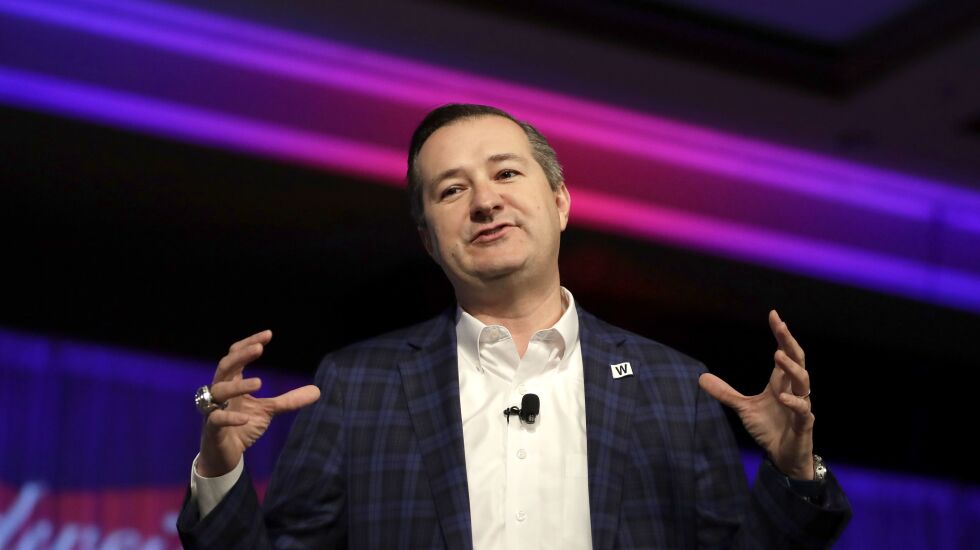
What’s the No. 1 reason people buy professional sports franchises? The easy answer would seem to be money. If you buy a team in a major league, it means that you’re ridiculously rich and that you’re going to be ridiculously richer when you decide to sell it.
The Rams are worth $6.2 billion, double what they were worth just five years ago, according to Forbes. The 50 most valuable sports franchises in the world are worth 30% more combined than they were last year, the magazine reports.
So, money, right? People buy teams to grow bigger stacks of cash?
Nope. The reason so many wealthy folks are dying to own a major sports franchise is ego. Buy a team and you’re officially a Big Deal. You’re in an exclusive club. You’re living every fantasy team owner’s dream. Before, you were the owner of a multi-billion widget company. Now, people who wouldn’t know a widget from a wedgie recognize you in public.
The irony, though, is that, from the moment someone sits in the owner’s chair for the first time, their ego is under attack from fans and media. Who does he think he is, owning our team? By Year 2 or 3, that ego should be beaten to a pulp, but thanks to a phenomenon I’ll get to in a moment, it’s merely bruised.
Put aside the gobs of money that come from owning a team. (I get it: hard to do.) Would you like to be any of the owners of Chicago’s five major franchises? Few people in the city are subjected to as much regular ridicule as they are. That ridicule is a sport itself, on equal footing with the games on the field.
If being an owner could be summed up in one word, it would probably be “boo.’’
Fans booed Cubs chairman Tom Ricketts four years ago at the team’s convention. A 2016 World Series title might have given him the impression he was loved, if not beloved, but two years later, the fans at the convention were there to tell him they were not happy about the fees attached to the franchise’s new TV network.
Ricketts and other members of his family are scheduled to take questions from fans Saturday at this year’s convention, and if history is any guide, there will be more blood. Another rebuild means ownership has subjected the fan base to two seasons of enthusiastic losing so far, without much of a letup on the day-to-day shaking of money from fans’ pockets.
How does a person like Ricketts manage to carry on in the face of all that abuse?
With a good amount of obliviousness, I think. He looked genuinely bewildered by the boos at the convention four years ago, as if it never occurred to him that anyone would be upset about such a magnificent idea as Marquee Sports Network. In his mind and in the minds of other people who own pro teams, charging fans for the privilege of watching games at home is obvious. It’s like breathing. It’s what you do.
Eventually, that obliviousness becomes your protector and constant companion.
Why did White Sox chairman Jerry Reinsdorf even begin to think that hiring 76-year-old Tony La Russa as his manager two years ago was a good idea? Because, for years, he has sheltered himself from the storm of abuse that has come his way as the owner of the Sox and the Bulls. He has withdrawn into himself. It’s hard to reach someone wearing earplugs during meetings about managerial candidates. Reinsdorf rarely does media interviews and, when he does, it’s usually with handpicked reporters. That hasn’t stopped the howls from the paying customers.
The way things are going, Ricketts very well could be building a similar bunker.
Bears chairman George McCaskey is The Accidental Owner, as is everyone in his family. His mother, Virginia, is the daughter of team founder George Halas. The football gene did not get passed down, however, and the franchise hasn’t done much in the way of winning games. That hasn’t sat well with fans, who regularly rip him on radio talk shows. To his credit, McCaskey walks through Soldier Field parking lots before games and talks with tailgaters. I chalk up his ability to walk away unscathed from those encounters either to the politeness of fans in the presence of celebrity or to a remarkable talent for regenerating severed limbs.
Blackhawks owner Rocky Wirtz turned into a hero when it became apparent he wasn’t his father, Bill, whose penny pinching ways made him Public Enemy No. 1 to fans. The Hawks won three Stanley Cups under Rocky Wirtz, but much of the goodwill he had built up went away when it became clear his organization had tried to cover up sexual-assault accusations made by a player against a team employee.
All of these people have money, some through their own efforts and talents, most through the efforts and talents of a successful parent. They came to professional sports looking for something besides more wealth: ego stroking. Then reality set in. Then they shut down.
There’s a reason teams owner rarely walk onto the field, the court or the ice to hand out an award or to address the crowd. They’re likely to get booed. A politician would get a better reception. So would a tax audit announcement.
So you want to own a professional sports franchise.
You sure about that?







